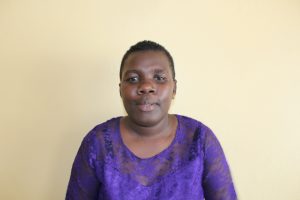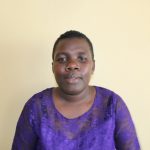Lurale Primary School in Kakamega County, Western Kenya, is surrounded by sugarcane plantations. The school was established in 1935 by community members who wanted their children to read and write to secure good jobs in the future.
A typical school day for the 723 students and staff at Lurale Primary School begins at 6:30 am. After morning classes, their daily schedule is interrupted. The school does not have a water source, so students rush to a nearby secondary school to fetch water from a borrowed well that is overpopulated. This distraction causes students to miss valuable class time.

When they arrive, taps are sometimes locked, making water unavailable. Once unlocked, if secondary students or adults (from the nearby community) use the water, the primary students must wait and go last. These things waste time.

"Time we normally use to wait [for] secondary students to finish using the water source before we fetch always affects our studies. Like now, we are having exams but still need to fetch water for our use which makes it difficult to revise (study)," said 12-year-old Fitiriah L. shown in the photo above.
Once water is collected, students carry it back to their school, which is difficult and tiresome for young students, causing them to fall asleep in class.
The school needs a well, and the administration is willing to support the project's success by providing any required materials and assisting with labor.
What We Can Do:
New Well
We conducted a hydrogeological survey at this school and the results indicated the water table beneath it is an ideal candidate for a borehole well. Due to a borehole well's unique ability to tap into a safe, year-round water column, it will be poised to serve all of the water needs for this school's large population, even through the dry months.
The school will help collect the needed construction materials such as sand, rocks, and water for mixing cement. They will also provide housing and meals for the work team, in addition to providing local laborers. We will complement their materials by providing an expert team of artisans and drilling professionals, tools, hardware, and the hand-pump. Once finished, water from the well will then be used by the school’s students and staff for drinking, handwashing, cooking, cleaning, and much more.
Handwashing Stations
There is currently nowhere for students to wash their hands after using the latrines or before eating lunch, let alone the water to do so.
The student health club will oversee the two new handwashing stations we will provide, and make sure they are kept clean and in working condition. The club leaders will fill the handwashing stations with water daily and make sure they are always supplied with a cleaning agent such as soap or ash.
VIP Latrines
We will construct two triple-door latrine blocks using local materials that the school will help gather. Three doors will serve the girls and three doors will serve the boys. All of these new latrines will have cement floors that are designed to be easy to use and to clean. And with a borehole right on school property, there should be enough water to keep them clean.
Training on Health, Hygiene, COVID-19, and More
We will hold a one-day intensive training session with students, teachers, and parents. This training will cover a wide range of topics including COVID-19 symptoms, transmission routes, and prevention; personal and environmental hygiene; and the operation and maintenance of the borehole, latrines, and handwashing stations. There will be a special emphasis on handwashing.
Our team of facilitators will use a variety of methods to train, including participatory hygiene and sanitation transformation, and asset-based community development. We will initiate a student health club, which will prepare students to lead other pupils into healthy habits at school and at home. We will also lead lectures, group discussions, and provide illustrative handouts to teach health topics and ways to promote good hygiene practices within the school including handwashing and water treatment. We will then conduct a series of follow-up trainings before transitioning to our regularly scheduled support visits throughout the year.
We and the school strongly believe that all of these components will work together to improve standards at this school, which will help lead to better student academic performance and will help unlock the opportunity for these students to live better, healthier lives.

 Borehole Well and Hand Pump
Borehole Well and Hand Pump
 Rehabilitation Project
Rehabilitation Project








































